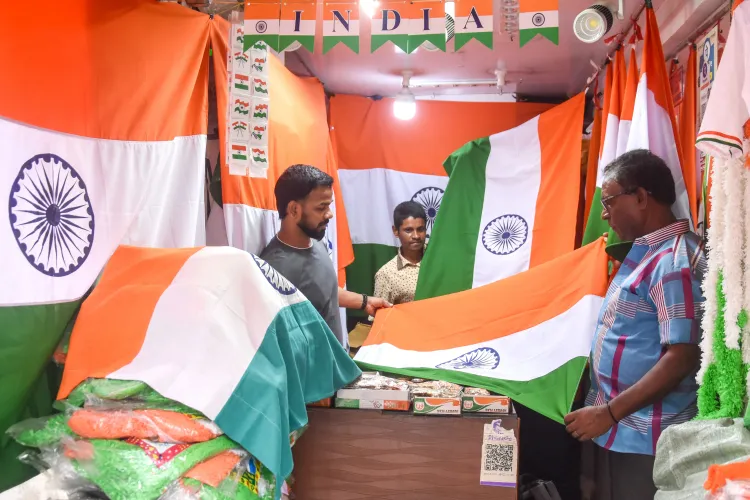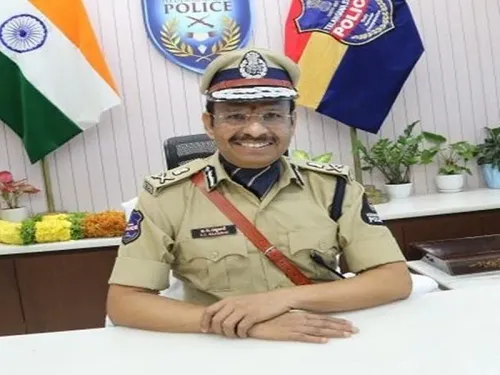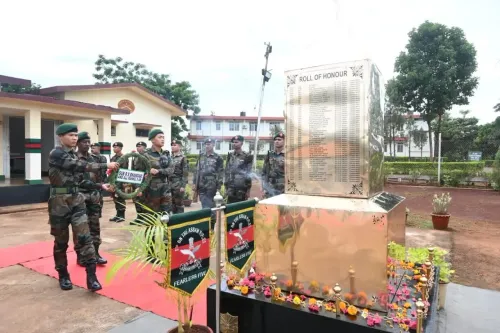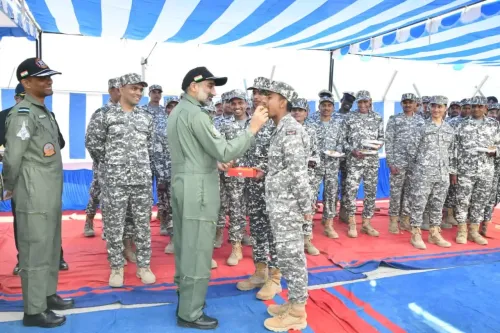Did Chhattisgarh Waqf Board's I-Day flag hoisting order ignite controversy?

Synopsis
Key Takeaways
- The Chhattisgarh Waqf Board has mandated flag hoisting on Independence Day.
- Mixed reactions have emerged from political leaders and the public.
- Some praise the initiative as a patriotic gesture.
- Concerns have been raised about authority and imposition.
- Implementation requires photographic evidence of ceremonies.
New Delhi, Aug 13 (NationPress) The directive from the Chhattisgarh State Waqf Board requiring the national flag to be hoisted at the main entrances of all mosques, madrasas, and dargahs throughout the state on Independence Day has ignited a torrent of diverse reactions. Some political figures have condemned this action as an “imposition.”
On Monday, Waqf Board Chairman Salim Raj released a circular directing mutawallis (caretakers of Waqf properties) to ensure that the Tricolour is displayed in the presence of imams and mosque committee members on August 15.
The directive underscores that the national flag represents “a symbol of honour and pride” and is not tied to any religious beliefs.
However, the decision faced strong criticism from Congress MP Tariq Anwar and Maharashtra Samajwadi Party leader Abu Azmi.
Speaking to IANS, Anwar stated, “I believe all this is nonsense. In our country, there is no tradition of hoisting the national flag at religious sites. People hoist the flag out of their own will; it cannot be done by imposing pressure or restrictions.”
Abu Azmi remarked to IANS, “Get his DNA test done, see who he is. Such people are sycophants. Ulemas died fighting for freedom and sacrificed so much. These people were the ones who used to lick the feet of the British, just want to divide the nation.”
Congress leader Husain Dalwai mentioned that while there is no issue with displaying the Tricolour at mosques and madrasas, the Waqf Chairman lacks the authority to issue such directives.
“In many places, the Tricolour is already hoisted at mosques and madrasas, and it should indeed be hoisted. But who gave them the authority to issue such an order about where the flag should be hoisted and where it should not?” Dalwai told IANS.
He also noted that the Rashtra Swayamsevak Sangh (RSS) and the BJP had not hoisted the national flag at their offices for years.
“First, an order should be issued for the RSS, asking it to hoist the Tricolour at its headquarters. For years, neither at the RSS offices, nor at the BJP headquarters, the Tricolour was hoisted,” he added.
Conversely, several Muslim organizations commended the initiative.
Javed Memon, President of Odisha's Kanker Anjuman Islamia Committee, expressed gratitude, stating, “We express our gratitude to Salim Raj for guiding us with this excellent initiative. It is a proud moment for us.”
Another Anjuman Islamia Committee member, Gaffar Memon, added, “Previously, the flag hoisting used to take place only at Sanjay Nagar Madrasa, but this time we have the opportunity to celebrate Independence Day with the entire community. We thank the government and Salim Raj for this.”
According to Salim Raj, since Independence Day is a national celebration and not a religious one, the order was made to address concerns raised about flag hoisting at religious locations.
“Due to the actions of a few fundamentalists, the entire Muslim community is viewed with suspicion. This initiative is meant to change that narrative,” he stated.
The Waqf Board claims the initiative aims to foster patriotism and communal harmony, especially in light of recent events that have adversely affected the public image of the Muslim community.
To ensure compliance, mosque committees must submit photographs or video evidence of the flag-hoisting ceremonies via a dedicated online portal or WhatsApp group within 30 minutes of the event.









